The Best Jazz Albums of 2010
Jason Moran, Keith Jarrett, and more.
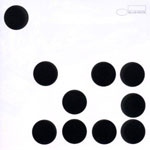
Jason Moran, Ten (Blue Note). Moran, just 35, is the protean jazz pianist of our time, and this album, marking his Bandwagon trio's 10th anniversary (hence the title), also marks his peak: a mix of blues, elegies,
a couple of classical pieces by Conlon Nancarrow *, a sly variation on Monk's "Crepuscule with Nellie,"
and a recital of Bernstein's "Big Stuff" that goes from lyrical
to frenzied
without missing a beat or violating the song's spirit.
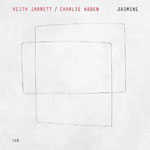
*
*
Keith Jarrett and Charlie Haden, Jasmine (ECM). The most virtuosic living jazz pianist and the most expressive bassist team up for the first time in 35 years to play an intimate session of duets, mainly standard ballads,
and the result is an album of sheer beauty unlike anything either musician, for all their considerable glories over the decades, has ever quite achieved. It's simpler than much of their individual work, but listen closely to the rhythmic interplay; there's a lot going on beneath the surface.
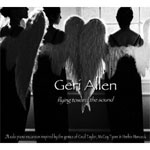
*
*
Geri Allen, Flying Toward the Sound (Motema Music). It's a bold move to subtitle an album "a solo piano excursion inspired by Cecil Taylor, McCoy Tyner and Herbie Hancock"—kind of like Babe Ruth pointing to a spot in right-center field—but Geri Allen knocks it out of the park. Many have imitated those masters' block chords and Ravelian tone clusters, but Allen—who has been toiling in the fields for a quarter-century now, mainly as a side player to others—taps into the acrobatic joy of this music and, a rare thing, transmutes it into her own voice.
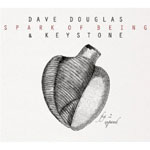
Dave Douglas, Spark of Being (Greenleaf Music). Dave Douglas, the finest jazz trumpeter on the scene, with a plangent tone and a special way with minor-chord intervals that can swoop into high-octave loop-de-loops on a moment's notice, composes and plays the soundtrack for Bill Morrison's experimental movie on the Frankenstein myth. Featuring his sextet Keystone, it's dark, eerily rumbling, and his hippest (and most elegant) foray into the shades of electric fusion.
It's a 3-CD box set, but you can buy them separately, and if you do, go for Disc 2, "Expand."
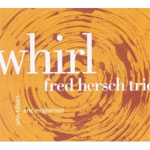
*
*
Fred Hersch, Whirl (Palmetto). Hersch, a lyrical pianist-composer with a propulsive force and a flair for edgy harmonies, spent much of last year in a coma brought on by complications from HIV. This is his post-awakening album—mainly standards and original ballads—laid down after a long struggle to re-teach himself how to coordinate his fingers with the keyboard, but you wouldn't know anything was amiss. His touch is still elegant but also probing, the staggered rhythms adding urgency and poignance to an entirely unsentimental celebration of life.
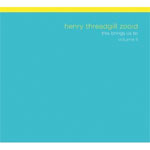
*
*
Henry Threadgill, This Brings Us to Vol. 2 (Pi). Reedman-composer Henry Threadgill comes out of the Chicago avant-garde, which has long plumbed the links between ancient and hyper-modern, tying improvisational techniques not to bebop's strict formalism but rather to the loose polyphony of early blues and even ragtime. This new album, his second with the quintet Zooid (which is practically co-led by electric guitarist Liberty Ellman), is his best in a dozen years: rollicking, furtive, jangled, haunting.
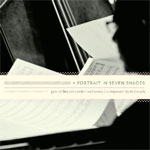
*
*
Ted Nash, Portraits in Seven Shades (Lincoln Center Jazz Orchestra). Many composers have tried to translate great paintings into music, but Ted Nash, one of the more adventurous reedmen with the Lincoln Center Jazz Orchestra, pulls it off. He's long displayed an Ellingtonian knack for lush colors and narrative drive. On "Monet" he stacks airy winds on top of trombones, trumpet accents, and his own flitting flute—and, yes, those shimmering Water Lilies come to mind.
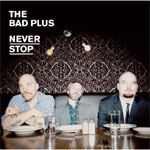
*
*
The Bad Plus, Never Stop (E-One). Those pomo bad boys with the crazy-quilt covers are back (Ethan Iverson, piano; Reid Anderson, bass; Dave King, drums), with their first album of entirely original material. The familiar wit and whimsy are intact, but there's also a more effortless swing, a less insistent virtuosity (though these are virtuoso musicians, all), and a more swooning emotional drive.
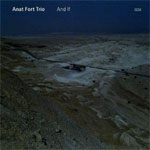
*
*
Anat Fort, And If (ECM). The Israeli-born pianist Anat Fort's second CD with her trio is turbulent but spare, knife-edged but tender, brimming with melodic hooks that loop in sinuous shapes and a slightly klezmeric insouciance.
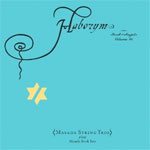
*
*
John Zorn's Masada String Trio, Haborym: The Book of Angels, Vol. 16 (Tzadik). In the past 20 years, composer-impresario John Zorn has written hundreds of jazz tunes in his Masada songbook—each written in one of the two "Jewish scales" (a major scale with the second note flat or a minor scale with the fourth note sharp)—for nearly a dozen ensembles, which record on his own Tzadik label. This latest, by the Masada String Trio (Mark Feldman, violin; Erik Friedlander, cello; Greg Cohen, bass), sounds much the same as the group's previous ventures—which is to say, it's vibrant, nervy, dance-in-your head thrilling, and a bit mellower than usual (in a good way).
P.S.: Among the year's many reissues, I would recommend Stan Getz & Kenny Barron, People Time: The Complete Recordings (Sunnyside); Miles Davis, Bitches Brew: The 40th Anniversary Collectors' Edition (Sony); and Henry Threadgill, The Complete Novus / Columbia Recordings (Mosaic).
P.P.S.: My list from last year of 2009's Best Jazz Albums would have included, high up, two staggeringly good, modern big-band albums, except that I'd neglected to hear them in time—Darcy James Argue & The Secret Society's Infernal Machines (New Amsterdam) and John Hollenbeck's Large Ensemble's Eternal Interlude (Sunnyside).
Click
Correction, Dec. 16, 2010: This article mistakenly referred to Conlon Nancarrow as "Colin Nancarrow." (Return to the corrected sentence.)
